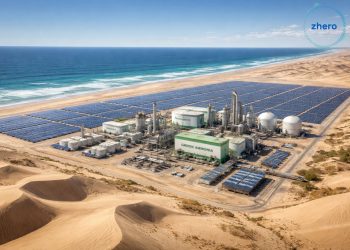
Indian multinational conglomerate Jindal Steel and Power (JSP) anticipates creating 6,300 jobs at its planned iron ore mine in Namibia’s Khomas region once fully operational.
According to a recent report seen by M&E, the project will initially require 100 to 300 workers during the construction phase, and about 700 employees during the mining phase before reaching full employment capacity in the future.
“The labour requirement for the proposed project is expected to be approximately 100 (first phase) to 300 people during the construction phase, and approximately 6,300 during the operational phase. Most employees will be sourced locally with potentially a few expatriates with specific expertise as required,” said the report.
Some potential skilled employment opportunities for the project will include a civil-structural engineer, a specialist in high wall mining, an engineer specialising in drill and blast, and a quality control engineer.
Furthermore, a chemist with XRF operation for ROM & concentrate analysis, a senior geologist overseeing QAQC, a process engineer, a plant operations manager, an instrumentation engineer, and a project manager.
Jindal Africa intends to establish an iron ore processing plant, facilitating local beneficiation and value addition as part of the investment.
“We believe that Jindal Africa’s Namibia project activities will contribute substantially to economic, social, and infrastructural development in the surrounding community, thereby enhancing the country’s GDP,” the company said.
The local investment will be spearheaded through Jindal Africa and its local unit Jindal Mining Namibia (Pty) Limited acquired Exclusive Prospecting Licenses (EPLs), 4914 & 4013 for base metal and Iron.
As part of the plans, an Environmental and Social Impact Assessment (ESIA) process for the development of an iron ore mine has been initiated, with the necessary specialist studies and mining licenses targeted to be secured this year.
Environmental Compliance Consultancy (ECC) reports that the exploration phase, conducted within these licences, yielded significant findings, estimating an indicated/inferred resource of approximately 750 million metric tonnes (MMT) of iron ore.
“This reserve is primarily accessible through open-cast mining, with favourable stripping ratios. Initial studies indicate the potential for an annual production of around 7.0 MMT of iron ore from an open pit during the project’s inception phase,” said ECC.
The proposed Jindal Mine project entails the establishment of multiple open pits utilising conventional drilling and blasting techniques.
Ore and waste rock extraction will be facilitated by a fleet of mobile equipment, with waste rock disposal planned at a designated waste rock dump (WRD) site.
Processing of the extracted ore will occur at a beneficiation plant, involving crushing, pebble milling, magnetic separation, and reverse flotation and the resultant product, iron ore fines, will be transported to Walvis Bay for shipment, utilising either road or rail infrastructure.
Currently, the project is conducting a baseline study to establish reference points for measuring future changes or socio-economic and environmental impacts amongst others.







